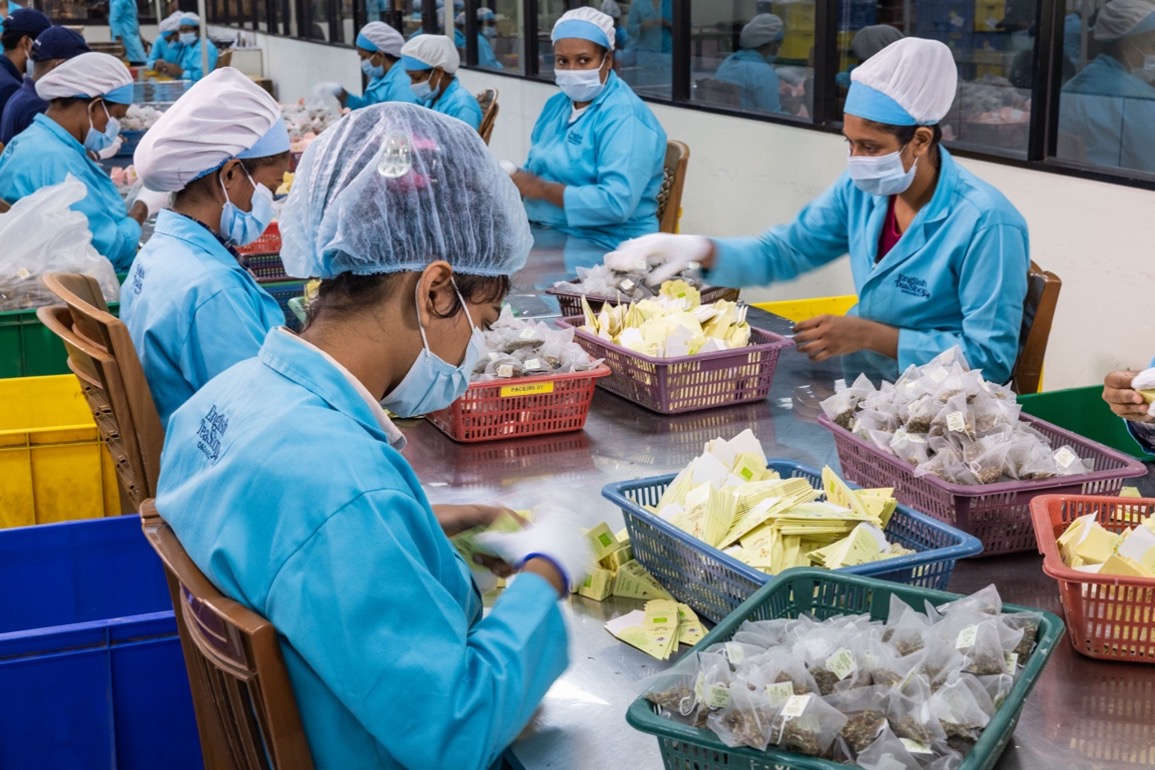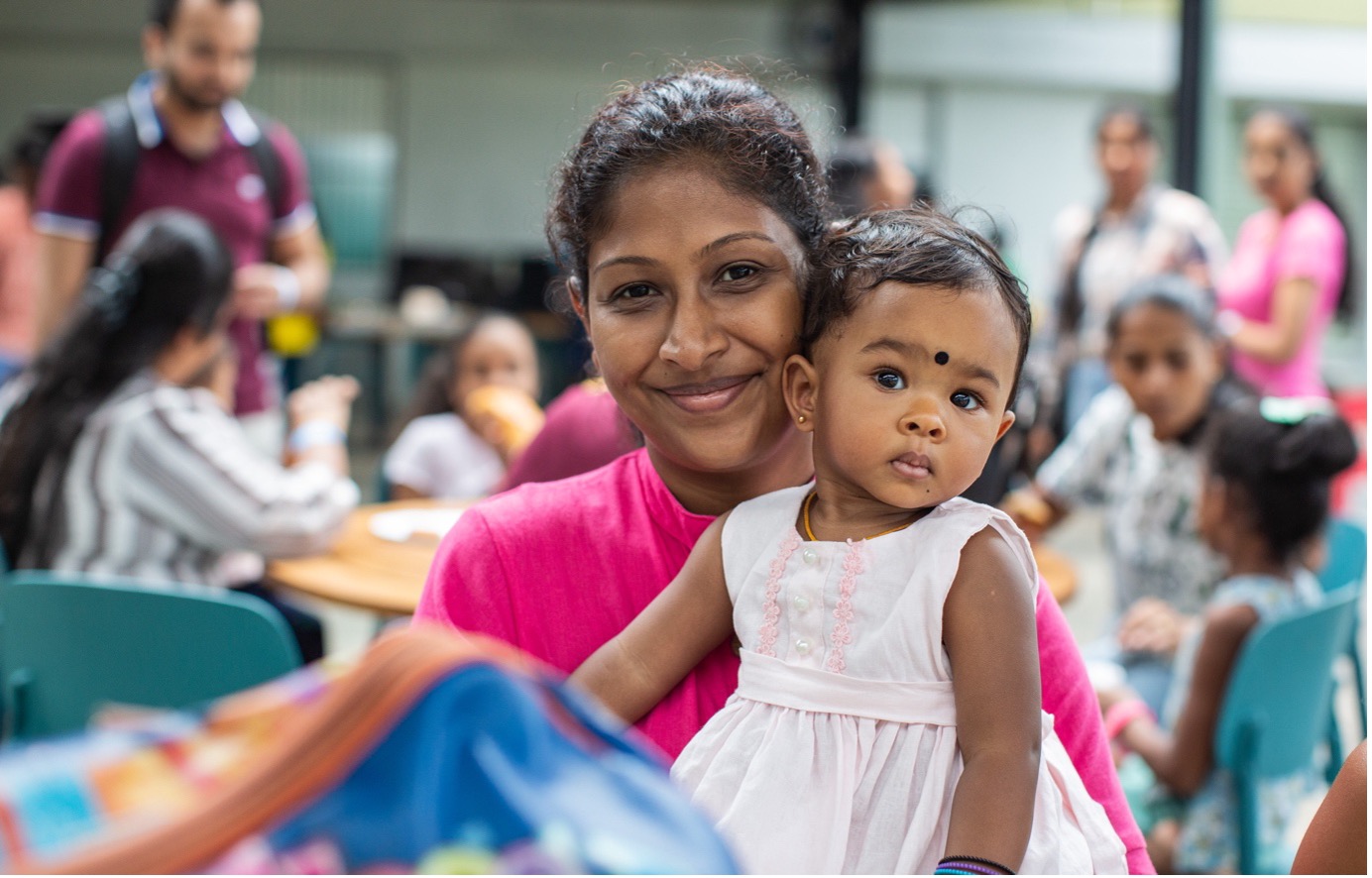
The unprecedented economic crisis experienced by Sri Lanka soon after the COVID-19 pandemic saw the cost of living skyrocketing and families struggling to feed their children and send them to school. “The country’s bankruptcy meant people had to face so many issues. They were losing hope. They were worrying the most about the children. There was a crisis,” remarks Suranga Herath, the CEO of English Tea Shop (ETS). “We decided to collaborate with The Centre for Child Rights in Business to design a solution to the problem. They played a significant role.”

English Tea Shop turned to The Centre for Child Rights in Business to help address the impact of the economic crisis on their staff and families
As an immediate response, The Centre facilitated the holding of psychological first-aid sessions for the staff and consultations with them. What emerged was the understanding that the stress people were experiencing was mainly related to their children. Parents, for example, were finding it challenging to afford educational materials and tuition fees and were anxious that their children’s education would be disrupted to an extent that would be impossible to recover from. Working further with The Centre, the English Tea Shop designed a child benefit initiative based on a monthly cash transfer programme to support the workforce and invest in their children’s well-being.
The child benefit allowance was launched in August 2022 for 143 children (63 boys and 80 girls) of ETS employees. Parents received a monthly child benefit allowance of LKR 3,500 to invest in a specific need for their child. Through the strategic funding of Save the Children, The Centre contributed 50% of the child benefit allowance during the pilot year. ETS will continue to fund the initiative independently going forward.
“With The Centre’s involvement, we started believing in the power of collaboration. This is a pioneering social protection programme,” says Suranga Herath. “We did not place any strict conditions. We understood that there are education, health, and nutrition concerns. We continue to have close dialogues with our staff to make sure that the money is used well – with both the families and the company tracking the expenses. When we saw that the money was put to good use, we had the confidence to do more.”

Suranga Herath, CEO of English Tea Shop, is committed to extending the child benefit initiative
English Tea Shop is a member of the Mother and Child-friendly Seal for Responsible Business, an activity-based scheme launched by The Centre in collaboration with the tea industry. ETS is a unique speciality organic tea company with its operations based on its philosophy of Prajãva – placing people first. It has an inclusive organisational culture, uses a transparent open-book financial management system, and is well on the way to becoming a majority employee-owned business.
“I think my father works for a special company because it is concerned about children. It is a friendly, welcoming place,” says Gihan,* 12. “The company has made it possible for us to study without worrying about things. I have not neglected my studies. I want to become a professional chef to work on a ship and explore the world.”

Gihan, 12, is ready to face the school exams
“I love going to school and I want to become a teacher,” says Dilhani,* 15. “Then I will take care of my mother just like she is taking care of me in these difficult times.”

Dilhani, 15, feels a deep sense of belonging in the company of her mother’s colleagues
“People in our country went through months of unspeakably hard times because they couldn’t afford the cost of food, medicine and even transport. Some of them are still experiencing these challenges,” says Deepal Prasanna, a father of two. “Our company has helped us cope. Keeping us healthy and happy is a company priority. We have begun participating in more leisure and recreation activities. I believe that the future will steadily become better. I am happy driving the company vehicles and my son wants to fly an aeroplane one day.”

Deepal Prasanna appreciates the leisure and recreation activities organised by English Tea Shop for both staff and families
Shanika Maduwanthi, 32, is a tea packer at ETS. “It has not been easy being a single mother. The problems I had to face when the cost of everything went up were many. I was anxious because I wanted to keep my child safe and well,” she recounts. “The company came to our aid. It is also concerned about our mental health. That’s something that is always neglected. Today I am living with my 12-year-old son with more confidence in myself and our future. We feel secure. And I think I will be able to rise in this company.”

Being a single parent, the economic crisis made Shanika feel especially insecure
The majority of the parents used the child benefit allowance to meet the educational needs of their child, ranging from educational materials to school transport, while others used it for the nutritional and hygiene needs of their children. A few families decided to invest the money as savings for their children.
“English Tea Shop was able to provide both financial and psychological relief to its staff when they most needed it,” says Mayuri Gallage, Assistant Manager, Communications. We are looking to continue this support in the upcoming years and to extend its benefits. Initiatives like these are vital. We want to inspire others to do the same.”

A recent survey of the impacts of ETS’s child benefit initiative indicated that 93% of the mothers and 87% of the fathers felt that it was highly significant for their families
* The names of the children have been changed to maintain their privacy.
The Mother and Child-Friendly Seal for Responsible Business is a collaborative initiative between The Centre for Child Rights and Business, Save the Children, and key stakeholders in the Sri Lankan tea industry. It aims to improve the well-being of families in Sri Lanka’s tea-growing communities through sustainable and meaningful investments by business entities in the tea supply chain (buyers, brands, plantation companies).
More information:
Website: https://childrights-business.org/SealInitiative Email: info.SL@childrights-business.org
By using this website, you agree to our use of cookies. We use cookies to provide you with a great experience and to help our website run effectively.